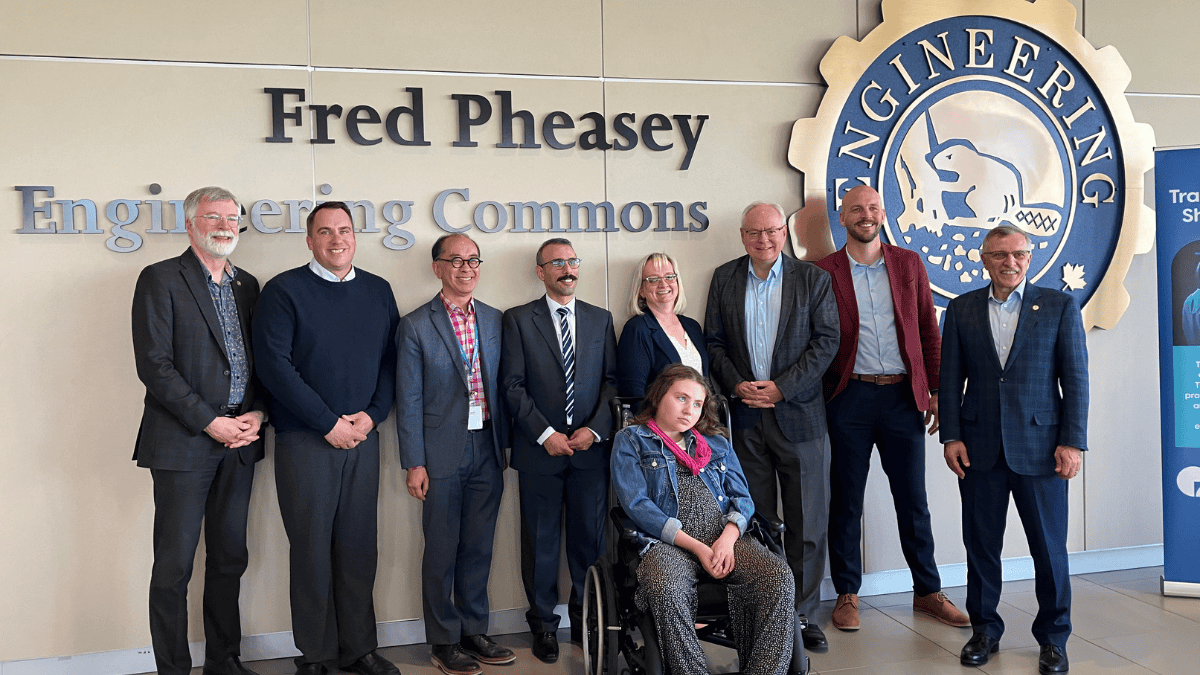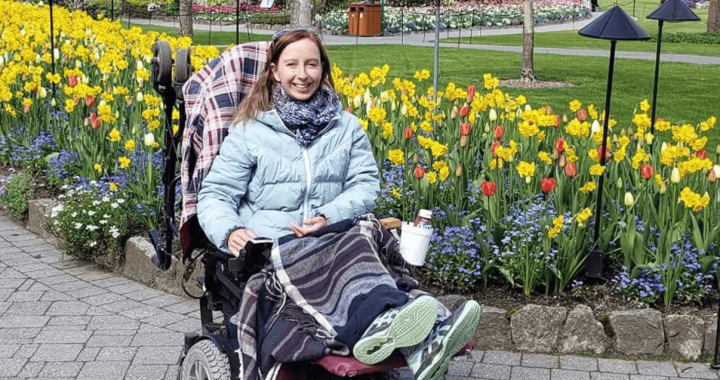In partnership with the University of Alberta, we announced Alberta’s first-ever Research Chair in Neurorehabilitation, held by Dr. Hossein Rouhani, who will focus on advancing brain-computer interface technology optimized for children.
Imagine a technology that can take your thoughts and translate them into commands to control things like toys, smart home technologies, or even a wheelchair.
For 15-year-old Olivia Terry, discovering that this technology – known as brain-computer interfaces (BCIs) – exists, was life-altering. That’s why the Terry family couldn’t be more thrilled that a new research chair, led by the Glenrose Rehabilitation Hospital and University of Alberta, will focus the next five-years on driving advancements in BCIs for children like Olivia living with complex neurological conditions.
When Olivia was 5 years old, she was diagnosed with Rett Syndrome – a rare genetic disorder that causes progressive loss of motor and communication skills. From walking, to talking, to eating, her condition impacts almost every aspect of her life. It hinders not only her independence, but also her ability to play, learn, create, and interact with others.
Four years ago, when the Terry family was first introduced to the Glenrose’s BCI Program, things that once felt impossible, became seemingly possible.
“BCI has opened doors and allowed for more independence and creativity in Olivia’s daily life. (The program) is amazing and Olivia is thrilled to be a part of it. Soon we hope she will be able to do so much more,” says Stephen Terry, Olivia’s father.
Using the power of her thoughts, Olivia first tried BCI to play, specifically, to play video games. Games progressed into painting, and eventually the technology advanced to where Olivia could power her wheelchair, once travelling 600 meters.
Using a special headset that reads electrical signals from the brain, BCI harnesses the power of the brain to translate thoughts into commands using advanced machine learning techniques. To paint, Olivia controls a roller ball using the thought of ‘pushing’ to move the ball around a canvas.
For the Terry family, BCI has been instrumental in helping Olivia gain back some of the independence she had once lost; however, current research for BCI technology is largely focused on adults. The new chair, Hossein Rouhani, who is a biomedical engineer and associate professor at the University of Alberta Department of Mechanical Engineering, acknowledges that there is a gap between BCI research for adults versus children, particularly neurodiverse children who could largely benefit from the technology.
“Due to developmental differences in brain signals, BCI algorithms optimized for adults cannot simply be applied to children,” he says. “We need to understand the unique needs and motivators of each individual child and the priorities of their families.”
Rouhani will lead an interdisciplinary team across the University of Alberta and the Glenrose Rehabilitation Hospital to drive forward BCI-related research for kids like Olivia, with his research primarily focused on developing sensor technologies for BCI-controlled power wheelchairs.
“We look forward to seeing the discoveries and possibilities that arise from this partnership, that will benefit not just Glenrose patients, but those nation-wide, facing some of the most complex neurological conditions,” says Mark Korthuis, President & CEO of the Glenrose Hospital Foundation.
The Glenrose Hospital Foundation is proud to be at the forefront of advancements in BCI and other advanced rehabilitative health technologies through investments in research and industry, like this new chair position.
Speaking towards his vision for the future of BCI, Stephen Terry hopes that he one day may even be able to hear Olivia call him ‘dad’ again.


